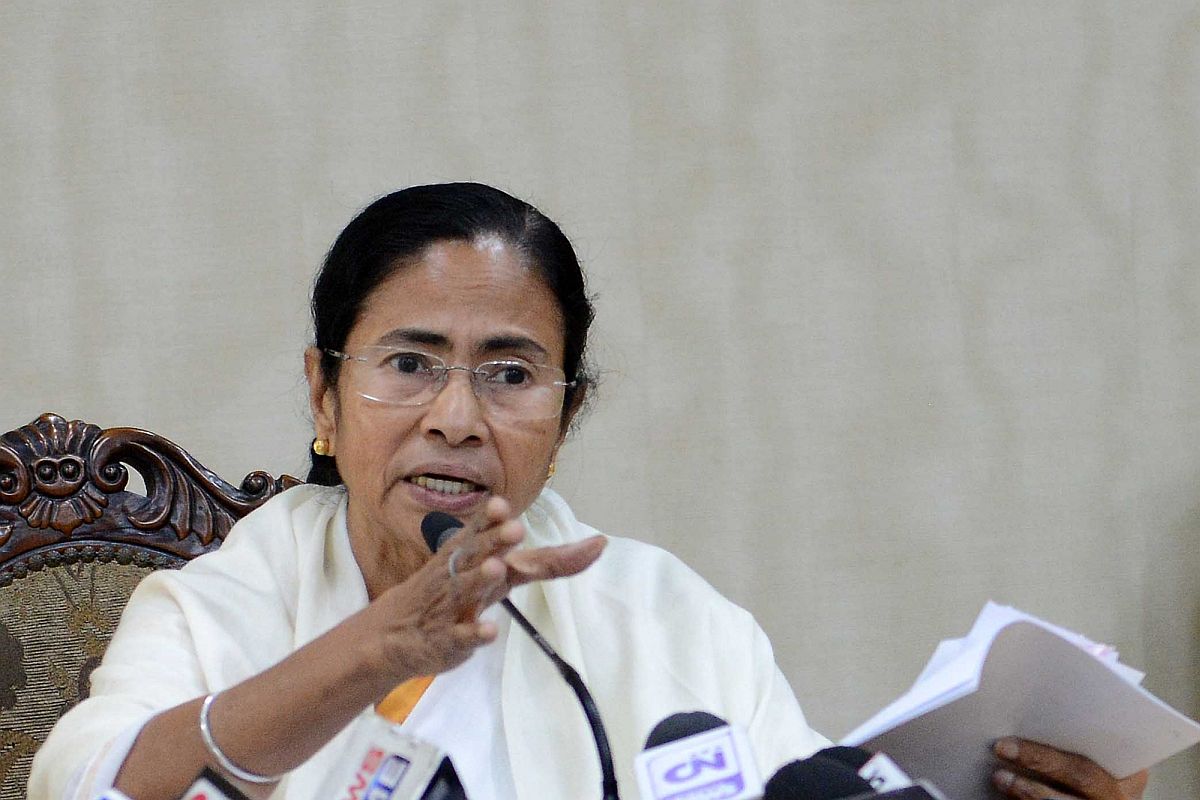CM lauds tigress rescue
Chief Minister Mamata Banerjee has extended appreciation for the Chief Conservator of Forests for his role in capturing Zeenat, an escapee tigress of Similipal Tiger Reserve of Odhisa.
Prime Minister Narendra Modi will chair the fifth meeting of Niti Aayog’s Governing Council on June 15 to discuss various issues concerning water management, agriculture and security.

West Bengal Chief Minister Mamata Banerjee (File Photo: IANS)
In an indication that she would skip the June 15 NITI Aayog meeting, West Bengal Chief Minister Mamata Banerjee wrote to Prime Minister Narendra Modi saying it was “fruitless” for her to attend the deliberations as the body has no financial powers and the power to support state plans.
In a letter to Modi on Thursday which was officially made public on Friday, Banerjee suggested that the government focus on the Inter-State Council with “appropriate modifications” to “deepen cooperative federalism and strengthen federal unity”.
Advertisement
Banerjee also claimed in the three-page missive that the National Development Council, “which has been given a quiet burial”, be subsumed within the broadened constitutional body the Inter-State Council.
Advertisement
“Given the fact that the Niti Aayog has no financial powers and the power to support state plans, it is fruitless for me to attend the meeting of a body that is bereft of any financial powers,” she said, intensifying her battle with the Centre.
Banerjee, in her letter, traced the history of the NITI Aayog ever since it was formed on January 1, 2015, to replace the Planning Commission.
“Unfortunately, a new body called NITI Aayog was formed on January 1, 2015, in place of the Planning Commission, without assigning any financial powers to assist the States, based on their need assessment, as was being done by the erstwhile Planning Commission. Furthermore, the new body also lacks the power of supporting the Annual Plan of the States.”
Banerjee had on earlier occasions also stayed away from Niti Aayog deliberations to drive home her annoyance at the dissolution of Planning Commission.
“The experience of the last four and half years we had with the Niti Aayog, brings me back to my earlier suggestion to you that we focus on the Inter-State Council constituted under Article 263 of the constitution, with appropriate modifications, to enable the ISC to discharge its augmented range of functions as the nodal entity of the country. This will deepen cooperative federalism and strengthen federal polity,” Banerjee said.
“May I also reiterate that the National Development Council which has been given a quiet burial, may also be subsumed within the broadened constitutional body of the State Council,” she added.
Prime Minister Narendra Modi will chair the fifth meeting of Niti Aayog’s Governing Council on June 15 to discuss various issues concerning water management, agriculture and security.
The council, the apex body of Niti Aayog, includes all chief ministers, lieutenant governors of union territories, several union ministers and senior government officials.
This will be the first governing council meeting under the new Modi government.
The Governing Council is expected to discuss important subjects, including major issues concerning water management, agriculture, and aspirational district programme, according to official sources.
On Thursday, PM approved the reconstitution of NITI Aayog with Home Minister Amit Shah as an ex-officio member. The reconstituted body will continue to see Indian economist Rajiv Kumar as its vice chairman, and VK Saraswat, Ramesh Chand and VK Paul as its members.
According to official sources, besides Shah, Defence Minister Rajanth Singh, Finance Minister Nirmala Sitharaman and Agriculture Minister Narendra Singh Tomar will also be ex-officio members.
Economist Bibek Debroy has been dropped from the panel.
Headed by the Prime Minister, the governing council meets regularly, and its first meeting took place on February 8, 2015.
The second meeting of council on July 15, 2015, reviewed the progress made by the three sub-groups of chief ministers and the two task forces.
In the third meeting of the council on April 23, 2017, Modi had pitched for conducting simultaneous elections of the Lok Sabha and the state assemblies and shifting to a January-December fiscal year.
The fourth meeting of the council on June 17, 2018, deliberated upon measures taken to double farmers’ income and the progress of government’s flagship schemes.
Advertisement